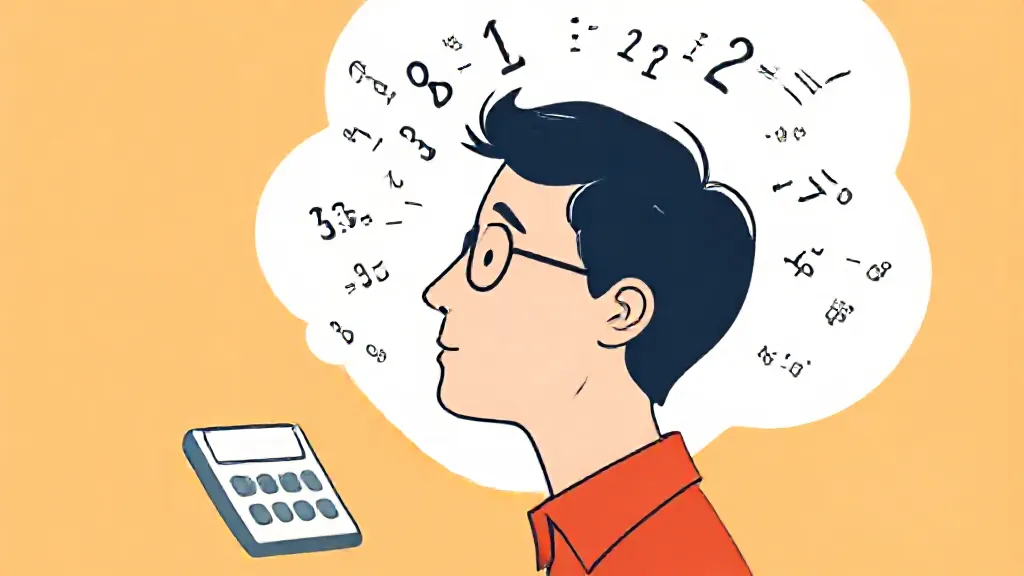In an age dominated by technology, calculators have become ubiquitous tools for performing mathematical operations. However, many individuals find that they can perform certain calculations faster in their heads than with a calculator. This phenomenon raises intriguing questions about cognitive processing, the nature of mental math, and the efficiency of technology in educational settings.
Understanding why mental math can sometimes outpace calculators requires a closer look at the mechanics of both mental calculation and electronic computation.
The Cognitive Advantage of Mental Math
Mental math relies on a series of cognitive processes that allow individuals to manipulate numbers and perform calculations without external tools. This skill often involves the use of number sense, estimation, and pattern recognition.
When faced with simple arithmetic problems, our brains can quickly access learned strategies, such as breaking numbers into smaller, more manageable parts. For example, to calculate 29 + 47, one might mentally regroup the numbers to 30 + 46, resulting in 76—an approach that can be executed almost instantaneously. This cognitive flexibility often allows for faster problem-solving than the time it takes to input numbers into a calculator.
Calculators and Their Limitations
While calculators are designed to perform arithmetic operations quickly, they have inherent limitations that can hinder speed in certain scenarios. For instance, calculators require users to input numbers and operations, which can take longer than simply recalling an answer from memory. Additionally, the reliance on technology can lead to a lack of engagement with the underlying mathematical concepts, making it difficult for some users to develop the mental agility needed for rapid calculations.
In timed situations, such as math competitions, the delay caused by entering data into a calculator can be a significant disadvantage.
The Role of Practice in Mental Calculation
One crucial factor that enhances the speed of mental math is practice. Individuals who regularly engage in mental arithmetic develop stronger numerical fluency and quicker recall of mathematical facts.
Research has shown that students who practice mental math techniques outperform their peers who rely solely on calculators. This improvement stems from repeated exposure to mathematical concepts, which strengthens neural pathways associated with number processing. As a result, experienced mental calculators can often perform operations faster than their calculator-using counterparts.
Context Matters: When Mental Math Shines
The context in which calculations are performed also plays a significant role in determining whether mental math or calculators are more efficient. For straightforward arithmetic problems, such as addition or subtraction of small numbers, mental math often prevails. Conversely, more complex operations, such as long division or advanced algebra, may necessitate the precision of a calculator.
However, in everyday situations—like estimating costs while shopping—mental math can provide quick, approximate answers that are often sufficient for decision-making, making it the more practical choice.
Educational Implications and Teaching Strategies
The debate between mental math and calculators has significant implications for education. Educators are increasingly recognizing the importance of fostering mental calculation skills in students to prepare them for real-world applications.
Teaching strategies that emphasize mental math can include games, timed challenges, and the use of visual aids to enhance number sense. By incorporating these methods into the curriculum, teachers can help students develop the cognitive skills necessary for efficient mental arithmetic, which can be beneficial throughout their academic and professional lives.
The Psychological Aspect of Mental Math
The psychological aspect of mental math also cannot be overlooked.
Engaging in mental calculations can boost confidence and foster a sense of accomplishment. When individuals successfully solve problems in their heads, they experience a cognitive reward that reinforces their skills. This positive feedback loop can encourage further practice and enhance overall mathematical ability.
In contrast, reliance on calculators may lead to a lack of confidence in one’s mathematical skills, as users may feel dependent on technology for even the simplest calculations.
Future of Mental Math in the Digital Age
As technology continues to evolve, the role of mental math is likely to change. While calculators and smartphones provide unparalleled convenience, there remains a strong case for maintaining mental math skills.
In a world where quick decision-making is often necessary, the ability to perform calculations in one’s head can be invaluable. Educators and parents alike should prioritize mental math training to ensure that future generations possess the cognitive tools needed to thrive in both academic and everyday contexts.
Conclusion: Balancing Technology and Cognitive Skills
Ultimately, the question of why mental math can sometimes be faster than calculators highlights the importance of balancing technology with cognitive skills.
While calculators are powerful tools that can handle complex calculations with ease, the human brain remains an incredibly efficient processor for many everyday arithmetic tasks. By encouraging mental math alongside the use of calculators, we can cultivate a generation of learners who are not only technologically adept but also possess strong foundational skills in mathematics. This dual approach will empower individuals to navigate the mathematical challenges of the modern world with confidence and agility.
